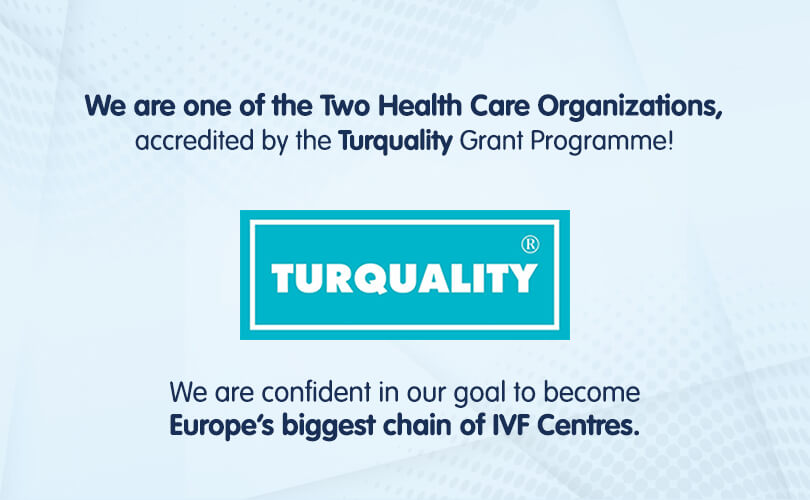What is Early Menopause?
We talk about early or premature menopause when a woman stops menstruation before the age of 40. In early menopause, the secretion of oestrogen decreases while the levels of FSH and LH increase. You can tell if you are in menopause with some simple blood tests.
What are the causes for Early Menopause?
Family History
The most important factor determining menopause onset is the age at which a woman’s mother went through menopause. If there is a family history of early menopause, there is a higher risk that the woman will go into early menopause as well.
Surgical Interventions
If both of the woman’s ovaries are removed for any reason, early menopause occurs. In addition, the ovaries can be damaged by gynaecological interventions.
Autoimmune diseases
One of the most common causes of early menopause is autoimmune diseases. In autoimmune diseases, the immune system sees its organs as foreign tissues and attacks them. If these organs are the ovaries, then early menopause occurs.
Cancer
Radiotherapy or chemotherapy during cancer treatments can damage the ovaries and cause early menopause.
Chromosomal disorders
Chromosome-related problems, such as Turner’s Syndrome or Fragile X Syndrome are another cause of early menopause.
Lifestyle
Unhealthy eating habits, stress, smoking and alcohol can lead to early menopause.
What are the symptoms of early menopause?
The first symptom in early menopause is periods becoming more frequent. A regular menstrual flow occurs approximately every 28 days. When menstural cycle occurs more frequently than every 22 days, it usually indicates a decrease in the ovarian reserve. When menopause nears, menstrual cycles decrease before stopping completely.
Additional symptoms include vaginal dryness, reduced sex drive, difficulty sleeping, hot flashes. If you experience such symptoms, you should see a gynaecologist as soon as possible.
Can you prevent early menopause?
Early menopause is an unpredictable condition, but early diagnosis is possible with regular medical examinations. In the early days of menstruation, hormone tests (AMH, FSH, oestradiol) are performed and the ovaries are examined via vaginal ultrasound. Thus, the number of eggs suitable for fertilisation can be estimated. The age of the patient is of utmost importance for a successful outcome in early menopause treatments. The younger the patient, the higher the chances of successful treatment.
Can you get pregnant with early menopause?
We recommend IVF for patients with decreasing ovarian reserve and who still wish to give birth. This is because IVF has the highest rate of success among assisted reproductive methods.
Unmarried patients who are not planning to become pregnant soon might consider egg freezing. In the egg freezing process, egg cells are obtained through the use of medication aiming to grow follicles. These egg cells are then frozen via the vitrification method. Thus, you can fall pregnant at a later date by using your frozen eggs.
In IVF and egg freezing procedured, the success rates of the centre performing the treatments, its experience and the strength of its embryology laboratory are very important.
As Bahçeci, we have proved our expertise in this field with 26 years of experience and over 80,000 healty babies. For a pre-consultation with our experts, feel free to contact us.





